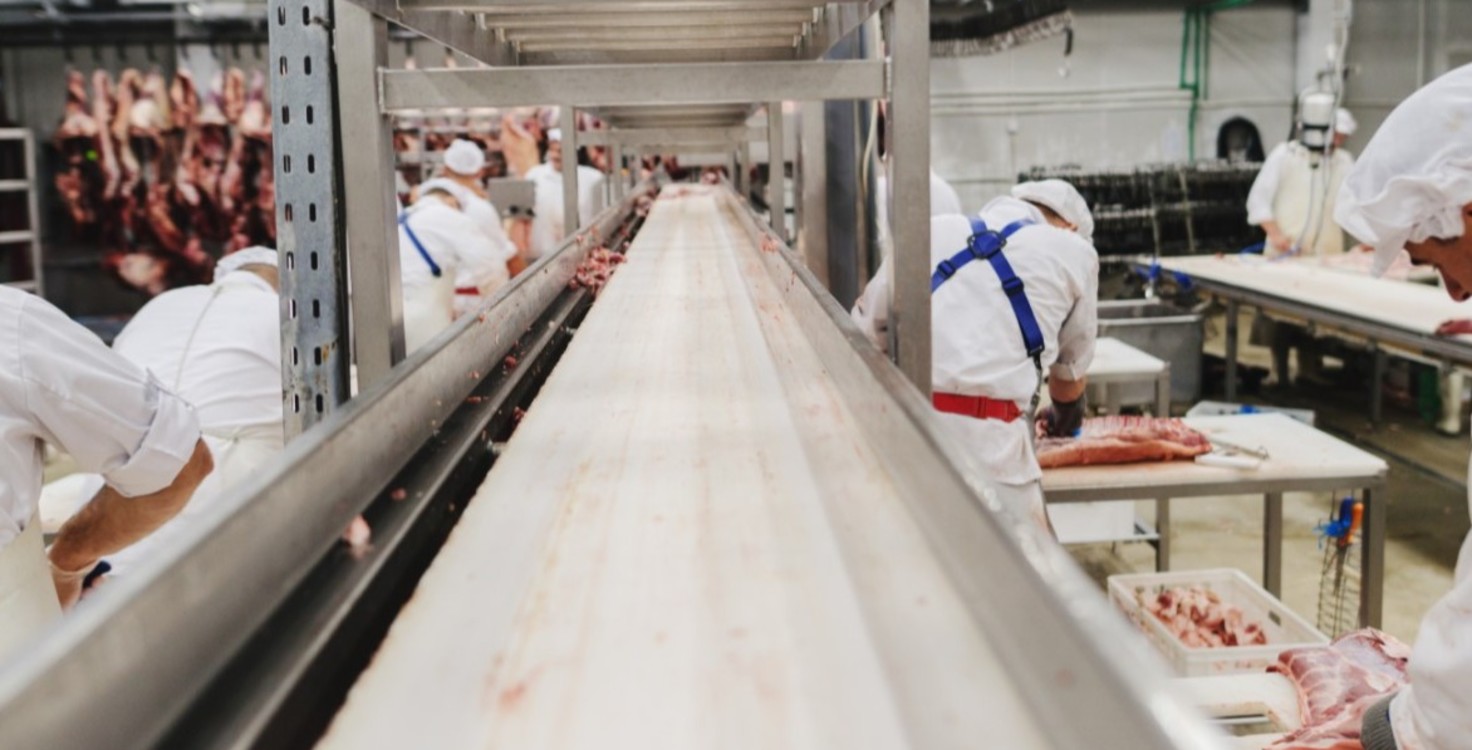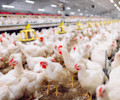In 2020, COVID-19 forced the world into lockdown and ground entire industries to a halt. Global meat producers, in particular, sought to address market disruptions while overlooking the long–standing and structural labour issues that exist throughout the supply chain. Producers have failed to protect their frontline workers despite evidence suggesting that meatpacking facilities were more likely to experience COVID-19 outbreaks due to poor factory conditions. The inaction of companies has put employee health in danger, and hundreds of tragic fatalities occurred. The COVID-19 pandemic has shown that poor labour management practices coupled with a heavy reliance on manual labour are working to exacerbate the negative material effects of human capital issues.
Key stakeholders were quick to react to the evidence of poor protective measures in meat plants; Governments, investors, media outlets, NGOs and workers (or their relatives) responded with mounting pressures and legal actions against major producers, such as Tyson Foods, JBS and BRF, which has compounded the risk faced by companies. Meat producers around the world now face fines, prosecutions, employee litigation, shareholder resolutions, industry regulation on labour management, and reputational risks as a result of their decisions, or lack thereof, during the pandemic.
Drawing from these industry-wide problems, FAIRR has launched a collaborative investor engagement focused on strengthening working conditions for the meat-producing sector. In preparation, we consulted over a dozen labour experts across the global meat industry to identify the most significant contributory factors to social risk. Their feedback was consistent: meat producers fail to listen to issues raised by their frontline workers. The sector urgently needs to strengthen management practices to amplify ‘worker voice’, which FAIRR interprets as the ability of workers to communicate risks to the company. If no action is taken, meat producers will continue to perpetuate longstanding labour and human rights risks well beyond the pandemic.
5 Actions That Investors Can Take
From our research, we have established five key ways that investors can engage companies on this issue, and encourage them to empower workers to report risks effectively and improve upon their labour management practices:
1. Urge meat companies to put effective grievance mechanisms in place
Experts stress the importance of easy-to-access channels for workers to report risks. Even where companies have mechanisms in place, workers face a range of barriers when attempting to voice issues. As an industry with a high proportion of migrant labour, many employees face language barriers when accessing grievance mechanisms. Furthermore, access to mechanisms may be limited to direct employees and include neither those in the wider supply chain nor the many subcontracted employees who work in the industry. In order to shore up workers’ ability to voice their issues, investors should engage meat companies on the effectiveness and outcomes of their grievance mechanisms.
2. Engage companies on their sick pay policy
Sick pay is crucial if workers are expected to stay at home whilst unwell. Without proper rest or treatment, an unfit worker can be a hazard to themselves and others in the workplace. Investors can also prompt companies to reconsider existing economic incentives, which may be limiting workers’ ability to take sick leave, such as performance bonuses tied to attendance. Reviewing the provision of sick pay and economic incentives is a first step in gauging how a company promotes a culture of health and safety amongst its workforce, and investors should urge companies to assess their sick pay policy from this angle.
3. Encourage transparency of employment practices and board oversight on contracts
Subcontracted and temporary positions are common in the meat industry, but they increase the risk of labour rights abuses for those who otherwise rely on continued employment. For many migrant workers, employment status is tied to the right or ability to remain in the country. Some workers will also depend on their employer for housing; however, this dependence creates a power imbalance, wherein the worker will be less likely to report issues for fear of retaliation. Meat companies provide limited evidence of board oversight relating to the types of contracts held by workers across locations and operating levels. Engaging meat companies on this issue would, therefore, allow investors to influence the transparency and quality of their employment practices.
4. Urge companies to strengthen worker representation
It is important to consider representation through all committees at both the internal and board level, as well as externally through legitimate and independent trade unions. Unions can serve as a fundamental mechanism in facilitating levelled conversations between workers and their employer. It is also fundamental in collective bargaining, which allows workers to negotiate improvements on other labour issues. Investors can help to amplify ‘worker voice’ by starting a dialogue with investee companies about union representation amongst their workforce, including whether they engage in collective bargaining with such groups.
5. Ask companies to engage workers and their representatives in industry-driven changes
Now more than ever, the industry is considering automation and facing greater pressure to address the climate emergency. Analysis by the FAIRR Initiative finds that increasingly more animal farming companies are in the process of setting emission targets. However, it is unclear whether companies are considering the impact of meeting such targets on their workforce. From our analysis, it is apparent that workers face barriers that prevent them from having levelled conversations with their employer about how the company’s response to the climate emergency will affect them. Investors can push for workers to be considered and represented in such changes, which will be crucial in supporting a just transition in the food industry.
FAIRR insights are written by FAIRR team members and occasionally co-authored with guest contributors. The authors write in their individual capacity and do not necessarily represent the FAIRR view.










